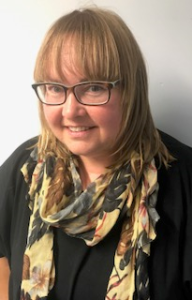NHS charity funds provide a lifeline for Deaf CAMHS service users and their families during the pandemic
The service has successfully bid for a grant to buy laptops and iPads to help deaf children to stay in touch
A grant worth more than £6,000 has been awarded to our Deaf CAMHS service to help make sure children and their families don’t lose access to vital support during the pandemic and beyond.
The money will pay for laptops and iPads to loan to those who don’t otherwise have them, helping them to continue to receive therapeutic input from our service, and also continue to receive support with their education while face-to-face interaction remains limited.
For people who communicate using British Sign Language (BSL), facial expressions are key. This means that face masks hinder communication, which has created an additional barrier to in person face-to-face contact happening safely. Conversations and consultations have therefore moved online, with the new funding being critical in enabling this to happen.
Vicci Ackroyd, BSL/English Lead Clinical Team Interpreter with the Deaf CAMHS Team applied for  the funding from NHS Charities Together and was successful. She said: “Deaf CAMHS is a highly specialised service. Our teams cover the North of England. As we cover a large geographical area and moved to working remotely, online, we were relying on families having the tech they’d need to continue to receive our service.
the funding from NHS Charities Together and was successful. She said: “Deaf CAMHS is a highly specialised service. Our teams cover the North of England. As we cover a large geographical area and moved to working remotely, online, we were relying on families having the tech they’d need to continue to receive our service.
“We know that ten per cent of adults experience digital exclusion, which means they don’t have access to smart devices or the internet. Twelve per cent of our children also experience this, which would mean we wouldn’t have been able to contact them at all. This would have had a massive impact on their lives and we wanted to enable them to access our service, education, and anything else they might need.
“Thanks to this funding we’re going to be able to provide a loaning service that will reduce isolation. Deaf children and their families, who use BSL, use the devices to access the world around them. The children are being seen by our service because they need our help and they need to be able to continue to access this help. Also, if families don’t use much BSL at home, or if TV programmes don’t have in-vision sign language, then the children who use our service could be at risk of language deprivation and delays in their education if they continue to be unable to access information in BSL.
“I’m a team interpreter with close ties to the deaf community, and throughout the Covid pandemic I’ve seen deaf people face many barriers. If this is one thing that I can do to help some families, then it’s amazing.
“The equipment is expected to arrive and be in use over the next few weeks”.